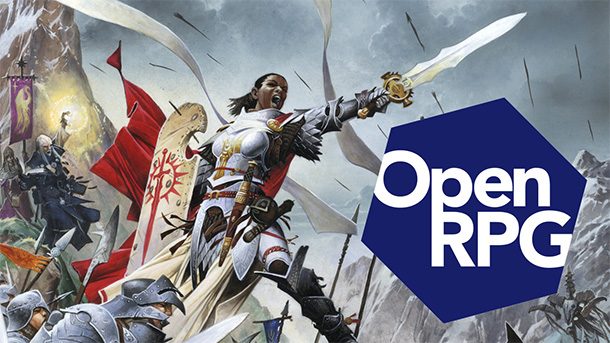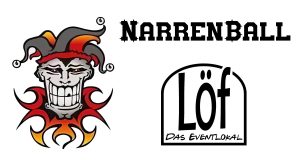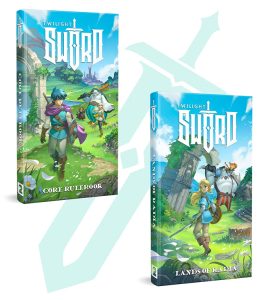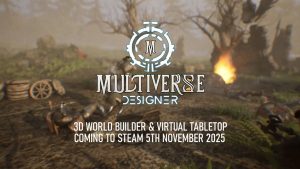Nach dem Leak einer »überarbeiteten« Open Game License für DUNEONS & DRAGONS kam es in den letzten Wochen zu einigen Verwerfungen in der Fan- und RPG-Verlagsszene. Ich hatte mehrfach berichtet, auch darüber, dass andere Verlage jetzt eigene offene RPG-Lizenzen planen. Hintergrund des ganzen Dramas kann gewesen sein, dass Hasbro im vergangenen Jahr dramatische Gewinneinbrüche zu verzeichnen hatte und deswegen vielleicht auf die Idee kam, zusätzliche Profite aus D&D ziehen zu wollen, um die Aktionäre zu beruhigen.
Das ging dramatisch schief, man hatte offensichtlich die Organisationsfähigkeit der Branche und die Marktmacht der Fans unterschätzt. Unter anderem wurde zur Kündigungen der Abos von D&D BEYOND aufgerufen, einer kostenpflichtigen Aboplattform, die digitale Tools zum Spiel bereit stellt. Dort gingen berichten zufolge daraufhin die Kündigungen durch die Decke.
Der massive Widerstand und die Kündigungen haben nun dazu geführt, dass man seitens Wizards Of The Coast scheinbar einlenkt (wir werden abwarten müssen, was konkret passieren wird) und sowohl die alte OGL nicht zurück nehmen möchte und weiterhin umfangreiche Änderungen an der neuen vornehmen will.
Doch möglicherweise ist es jetzt zu spät, denn sowohl Paizo als auch Free League Games haben eigene offene Gaming-Lizenzen angekündigt und die werden das auch sicher trotz des WotC-Rückziehers durchziehen. Denn man weiß nicht, wann sie es sich erneut anders überlegen werden.
Hier der komplette Wortlaut der Erklärung, die WotC letzten Freitag auf der D&D BEYOND-Webseite veröffentlichten, und die von PR-Sprech nur so trieft:
An Update on the Open Game License (OGL)
When we initially conceived of revising the OGL, it was with three major goals in mind. First, we wanted the ability to prevent the use of D&D content from being included in hateful and discriminatory products. Second, we wanted to address those attempting to use D&D in web3, blockchain games, and NFTs by making clear that OGL content is limited to tabletop roleplaying content like campaigns, modules, and supplements. And third, we wanted to ensure that the OGL is for the content creator, the homebrewer, the aspiring designer, our players, and the community—not major corporations to use for their own commercial and promotional purpose.
Driving these goals were two simple principles: (1) Our job is to be good stewards of the game, and (2) the OGL exists for the benefit of the fans. Nothing about those principles has wavered for a second.
That was why our early drafts of the new OGL included the provisions they did. That draft language was provided to content creators and publishers so their feedback could be considered before anything was finalized. In addition to language allowing us to address discriminatory and hateful conduct and clarifying what types of products the OGL covers, our drafts included royalty language designed to apply to large corporations attempting to use OGL content. It was never our intent to impact the vast majority of the community.
However, it’s clear from the reaction that we rolled a 1. It has become clear that it is no longer possible to fully achieve all three goals while still staying true to our principles. So, here is what we are doing.
The next OGL will contain the provisions that allow us to protect and cultivate the inclusive environment we are trying to build and specify that it covers only content for TTRPGs. That means that other expressions, such as educational and charitable campaigns, livestreams, cosplay, VTT-uses, etc., will remain unaffected by any OGL update. Content already released under 1.0a will also remain unaffected.
What it will not contain is any royalty structure. It also will not include the license back provision that some people were afraid was a means for us to steal work. That thought never crossed our minds. Under any new OGL, you will own the content you create. We won’t. Any language we put down will be crystal clear and unequivocal on that point. The license back language was intended to protect us and our partners from creators who incorrectly allege that we steal their work simply because of coincidental similarities. As we continue to invest in the game that we love and move forward with partnerships in film, television, and digital games, that risk is simply too great to ignore. The new OGL will contain provisions to address that risk, but we will do it without a license back and without suggesting we have rights to the content you create. Your ideas and imagination are what makes this game special, and that belongs to you.
A couple of last thoughts. First, we won’t be able to release the new OGL today, because we need to make sure we get it right, but it is coming. Second, you’re going to hear people say that they won, and we lost because making your voices heard forced us to change our plans. Those people will only be half right. They won—and so did we.
Our plan was always to solicit the input of our community before any update to the OGL; the drafts you’ve seen were attempting to do just that. We want to always delight fans and create experiences together that everyone loves. We realize we did not do that this time and we are sorry for that. Our goal was to get exactly the type of feedback on which provisions worked and which did not–which we ultimately got from you. Any change this major could only have been done well if we were willing to take that feedback, no matter how it was provided–so we are. Thank you for caring enough to let us know what works and what doesn’t, what you need and what scares you. Without knowing that, we can’t do our part to make the new OGL match our principles. Finally, we’d appreciate the chance to make this right. We love D&D’s devoted players and the creators who take them on so many incredible adventures. We won’t let you down.
OpenRPG Promografik Copyright Paizo



